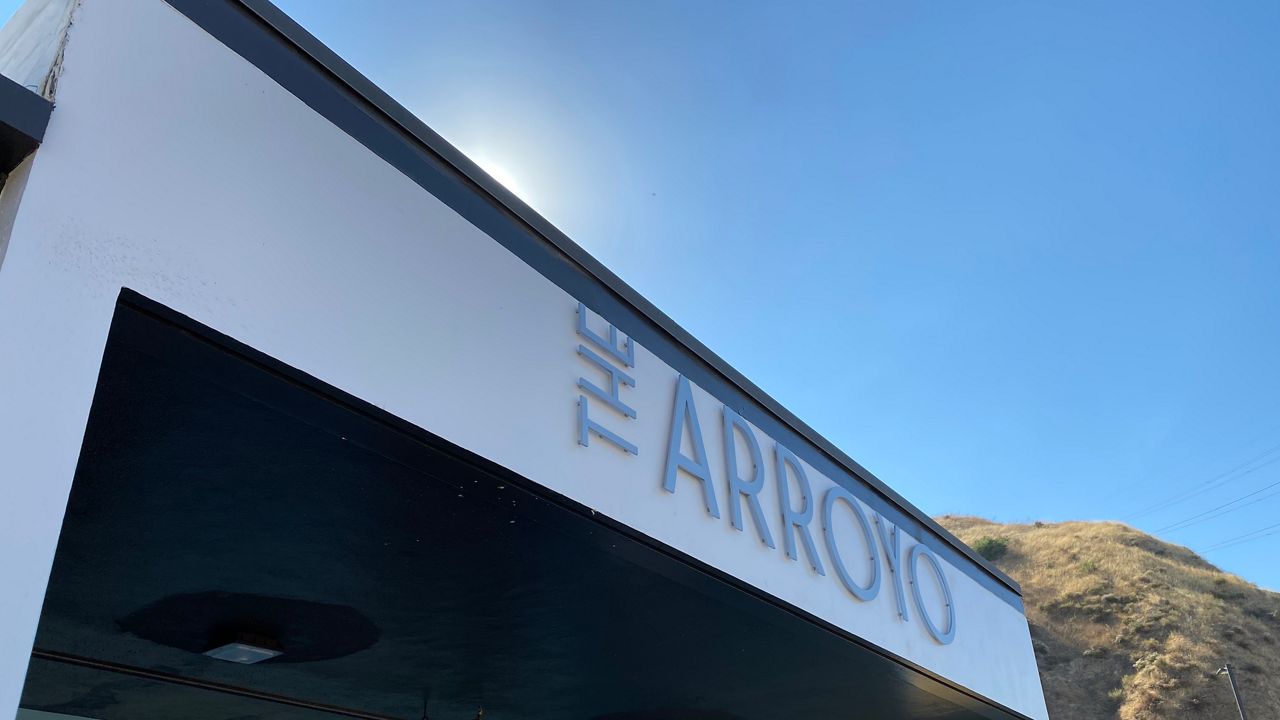SYLMAR — With the pandemic continuing to rage, it’s sometimes easy to forget that Los Angeles had many other problems it was trying to solve before COVID-19 came to town, one of the biggest being homelessness. More than 66,000 people in L.A. County are without a roof over their heads, according to the most recent Greater L.A. Homeless Count released in June – a 12.7 percent increase compared with 2019.
But a new bridge housing project opened in Sylmar Monday hopes to close that gap. The Arroyo is an 85-bed complex for women that includes an outdoor garden, yoga studio, dining room, and recreational areas, as well as services such as art therapy and mental health counseling to help them navigate a path toward permanent housing.
“Homelessness is about whole human beings,” L.A. Mayor Eric Garcetti said during Monday’s ribbon cutting. “Answers have to address the needs of individuals experiencing homelessness in context, in community, in family, with work, with trauma, with healthcare, with services, and this is a reflection of that.”
The Arroyo is the 24th of a planned 32 A Bridge Home projects to open in L.A., providing temporary shelter to those who are homeless and stabilizing their lives before helping them move on to long-term housing. It is the third women-only bridge housing complex in the city and the first in San Fernando Valley.
More than 18,000 women are homeless in L.A. County, many of them victims of some form of interpersonal violence, whether it’s child abuse, sexual assault, domestic violence, or human trafficking.
“You tend to see more history of trauma or history of violence that’s influencing women to experience homelessness, and their needs are just so different,” said Heidi Marston, executive director of the Los Angeles Homeless Services Authority. “Oftentimes having shelters that are mixed in gender becomes re-traumatizing. The more specific the type of internal healing that women need, the more success we see in being able to help them recover and move into a permanent housing solution.”
The Arroyo is the manifestation of the Los Angeles Housing Services Authority’s four-year-old ad hoc committee on women experiencing homelessness “that shed light on the unique experiences and trauma women face while living unsheltered,” said Stephanie Klasky-Gamer, president and chief executive of L.A. Family Housing, a service provider that helps people transition out of homelessness with shelter and supportive services.
Women staying at The Arroyo will have their physical and mental well being tended to, with “everything from food to helping get housing applications ready to activities that help heal the whole body,” Marston said. All of the staff at the Arroyo identify as female and are also trained in best practices for working with people who have experienced trauma.
Walk through The Arroyo, and everything seems designed to put its temporary residents at ease, to help them heal and move on. The beds are dressed in colorful quilts topped with welcome bags and toiletry kits. Some of the sleeping quarters also include kennels for pets. All of them have storage areas for personal belongings.
The dining room tables are colored in an uplifting palette of green and orange, their tables laid out with games and coloring books. Both indoors and out, there are lounge areas decorated with plants.
In addition to the 85 bridge housing beds, The Arroyo has 15 beds dedicated to recuperative care for homeless patients who have been discharged from hospitals but still need to heal from an illness or injury.
Funded with monies from city, county, state, and federal government, the Arroyo was originally home to the U.S. National Guard Armory and had previously operated as a cold winter shelter. L.A. County purchased the property in 2016 and has been working with various constituencies to turn it into bridge housing.
The hope is that the women who pass through the Arroyo will move into permanent housing funded through Measure HHH, the $1.2 billion bond measure designed to finance 10,000 units of supportive housing for individuals experiencing homelessness in L.A.



